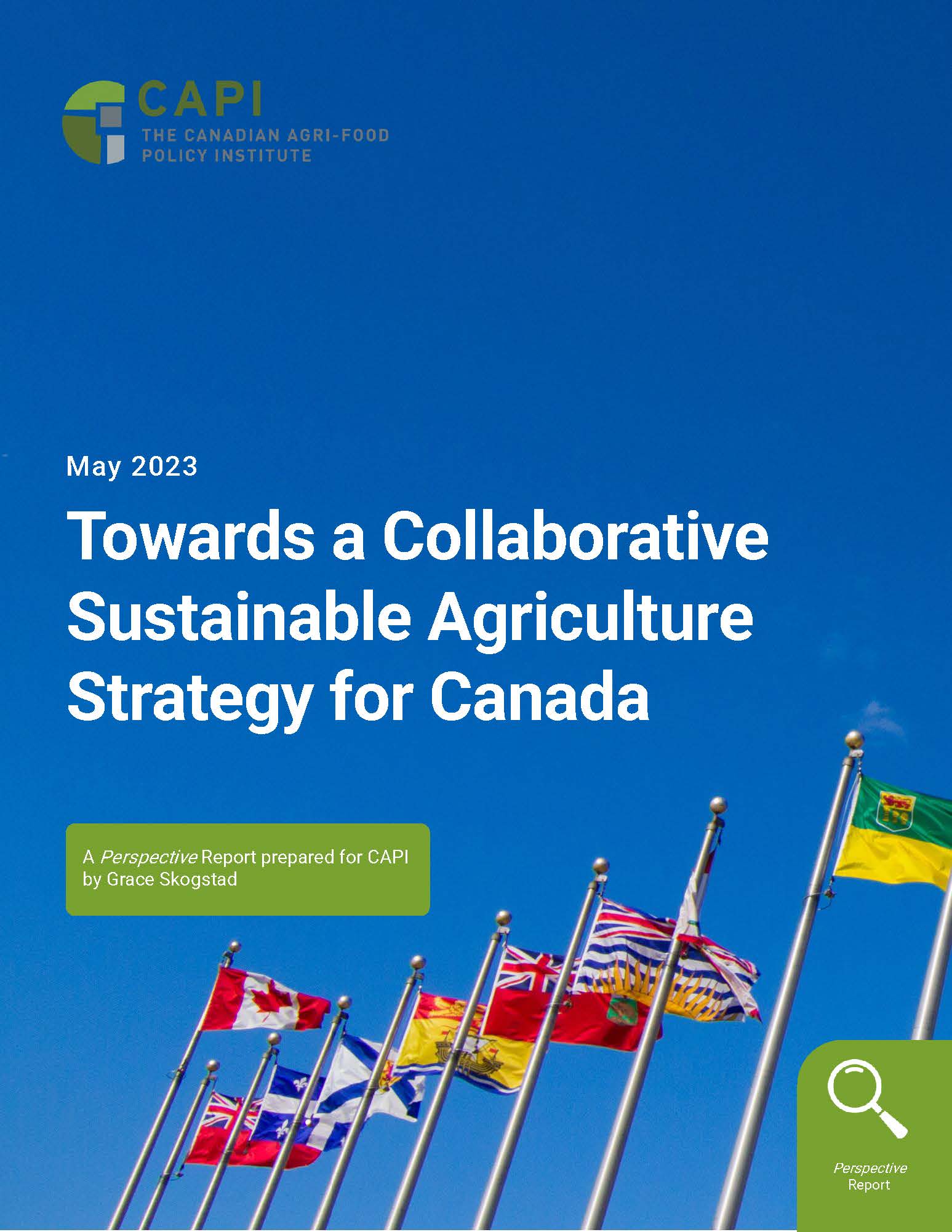Towards a Collaborative Sustainable Agriculture Strategy for Canada

Canada has bold policy aspirations on climate change mitigation, and these extend into agriculture. The most recent evidence is the federal government initiative on a Sustainable Agriculture Strategy, aiming to work with industry groups to secure greater action at the farm level to reduce greenhouse gas emission and increase carbon sequestration. However, with agriculture an area of formal responsibility for both federal and provincial/territorial governments, and with provinces/territories and federal governments active with resources in environment, it begs the question as to how governments will work together to create traction for the Sustainable Agriculture Strategy and achieve meaningful results.
In this paper, University of Toronto political scientist and CAPI Distinguished Fellow Grace Skogstad leads us through a web of market/technology/policy context, constitutional responsibilities, public resources, and politics that explains and helps identify a positive pathway for governments and the sector in the Sustainable Agriculture Strategy. Provincial and territorial governments have some discretion in determining how and whether to collaborate with federal initiatives and with each other, or to act independently and focus on provincial interests.
The resulting political and policy choices influence heavily what can be accomplished, and its effectiveness. The paper concludes with some insights that can help better align government interest and facilitate improved prospects for the Sustainable Agriculture Strategy.
This report is supported in part by the RBC Foundation through RBC Tech For Nature and part of CAPI’s larger environmental initiative, Spearheading Sustainable Solutions.
